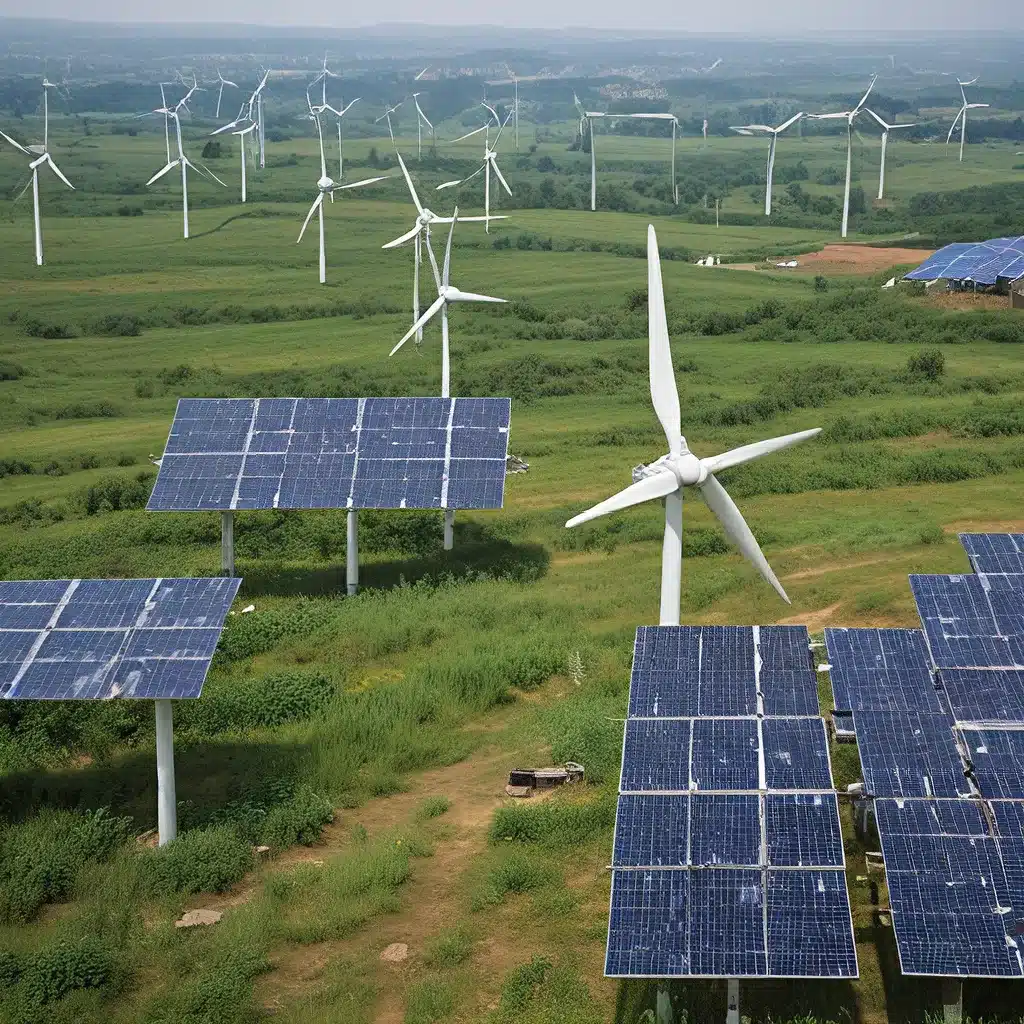
Ah, the ever-evolving world of renewable energy – where policies and regulations can make or break the future of our planet’s power supply. As someone deeply fascinated by this dynamic field, I’ve been closely following the latest trends and the role that government support plays in shaping the renewable energy landscape.
The Renewable Energy Transformation: A Global Imperative
It’s no secret that the global community is facing an unprecedented challenge when it comes to energy production and consumption. The alarming rise in greenhouse gas emissions, the depletion of fossil fuel reserves, and the mounting concerns over climate change have all converged to create a pressing need for a radical shift towards renewable energy sources. The International Renewable Energy Agency (IRENA) has been at the forefront of this transformation, advocating for bold policy solutions and technological innovations to accelerate the transition.
IRENA’s World Energy Transitions Outlook paints a compelling picture of the potential impact that renewable energy could have on our global energy system. By 2050, they envision a scenario where renewable energy sources could meet over 90% of global electricity demand. This would not only significantly reduce our carbon footprint, but also catalyze a wave of economic opportunities and job creation in the clean energy sector.
The Power of Government Policies: Shaping the Renewable Energy Landscape
While the technological advancements in renewable energy solutions are undoubtedly impressive, the true game-changer lies in the realm of government policies. Governments around the world have realized the urgency of the climate crisis and are actively shaping the renewable energy landscape through a diverse array of policy measures.
One such example is the recent policy initiatives in the United States, where the Biden administration has made it a priority to invest heavily in renewable energy infrastructure and incentivize the adoption of clean technologies. From tax credits for solar and wind installations to ambitious targets for renewable energy generation, the US government is leading the charge in creating a more sustainable future.
But the US is not alone in this endeavor. Globally, we’ve seen a proliferation of progressive renewable energy policies that are transforming the energy landscape. Countries like China, India, and the European Union have all established bold targets and implemented comprehensive policy frameworks to drive the transition towards renewable energy sources.
The Evolving Role of International Institutions
As the world grapples with the challenges of the energy transition, the role of international institutions has become increasingly crucial. The International Energy Agency (IEA), for instance, has been a key player in shaping global energy policies and providing a platform for collaboration among nations.
In a recent speech, former US Secretary of State Henry Kissinger highlighted the growing importance of the IEA in addressing the complex issues surrounding energy security and sustainability. He emphasized the need for a more robust and coordinated global response to the energy crisis, one that harnesses the power of international institutions to drive collective action.
The IEA’s influence extends beyond just policy recommendations; it also plays a vital role in data analysis, technology assessment, and knowledge sharing. By providing a comprehensive understanding of the global energy landscape, the IEA helps governments and industry stakeholders make informed decisions and implement effective policies.
The Challenges and Complexities of Renewable Energy Policies
While the potential of renewable energy is undeniable, the path to its widespread adoption is not without its challenges. Policymakers often find themselves navigating a delicate balance between economic, environmental, and social considerations, each with its own set of complexities.
One of the primary hurdles is the integration of renewable energy sources into existing grid infrastructures. Intermittency and variability of renewable energy, such as wind and solar, can pose significant technical and logistical challenges for grid operators. Addressing these issues requires coordinated efforts between policymakers, utilities, and technology providers to develop innovative solutions.
Another crucial factor is the cost competitiveness of renewable energy compared to traditional fossil fuels. Although the prices of renewable technologies have been steadily declining, the initial capital investment can still be a barrier for some regions and communities. Policymakers must find ways to level the playing field and incentivize the adoption of clean energy solutions.
The Role of Innovation and Collaboration
As the world continues to grapple with the energy transition, one thing is clear: innovation and collaboration will be key to unlocking the full potential of renewable energy. Governments, industry leaders, and research institutions must work together to develop cutting-edge technologies, streamline supply chains, and address the technical and economic challenges that stand in the way of a truly sustainable energy future.
At Firewinder, we’ve been closely following these developments and are committed to playing a role in this exciting journey. Our team of renewable energy experts is dedicated to providing innovative solutions and strategic insights to help our clients navigate the ever-evolving policy landscape and capitalize on the abundant opportunities in the clean energy sector.
So, what does the future hold for renewable energy policies? The only certainty is that the road ahead will be dynamic, filled with both challenges and breakthroughs. But with the right mix of bold policymaking, technological innovation, and global collaboration, I’m confident that we can collectively build a brighter, more sustainable energy future for generations to come.

